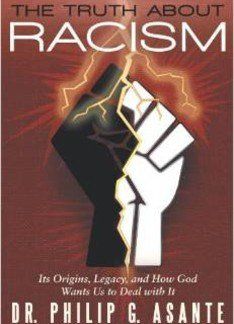I found this book hard to review. This was not because I disagreed with the arguments of the author, but simply because of the book’s highly emotive subject matter.
While I agreed with much of what was written, there were times I felt Asante was perhaps overstating his case. Nonetheless, he has challenged my thinking in this area.
I have little experience of Africa, but I do know that the slave trade which was carried on there by my own people should cause me to hang my head in shame.
The British Raj era in India may have instilled many commendable things into the life of that country, which still remain, but sadly the British Raj attitude was arrogantly superior. The effects of that were still prevalent in my early days in India. I hated it!
Philip Asante is a courageous man to write a book like this. From the outset it was clear that he wrote with passion about the subject.
I quickly learned that racism is inherently anti-Christian. The author demonstrates this by arguing for the link between racism and the theory of evolution. Concerning Darwin’s Origin of species, the author writes: ‘One can immediately see the potential racist implications in his theory, which implies there are favoured races’ (p.32).
We learn that there is one race (the ‘human race’), constituted of hundreds of ‘people groups’ across the world. The Christian view of the human race must be based on the teaching of Acts 17:26 and Deuteronomy 32:8. Paul’s sermon to the people of Athens leaves no room for racism or even the notion of superiority among certain people groups. The idea, for example, that ‘whites’ are superior to ‘blacks’ is a serious insult to the Creator.
Read this book with a mind open to the clear teaching of Scripture, praying for the humility to love the world of human beings in the same way Jesus did (John 3:16).
Philip Grist
Abingdon



